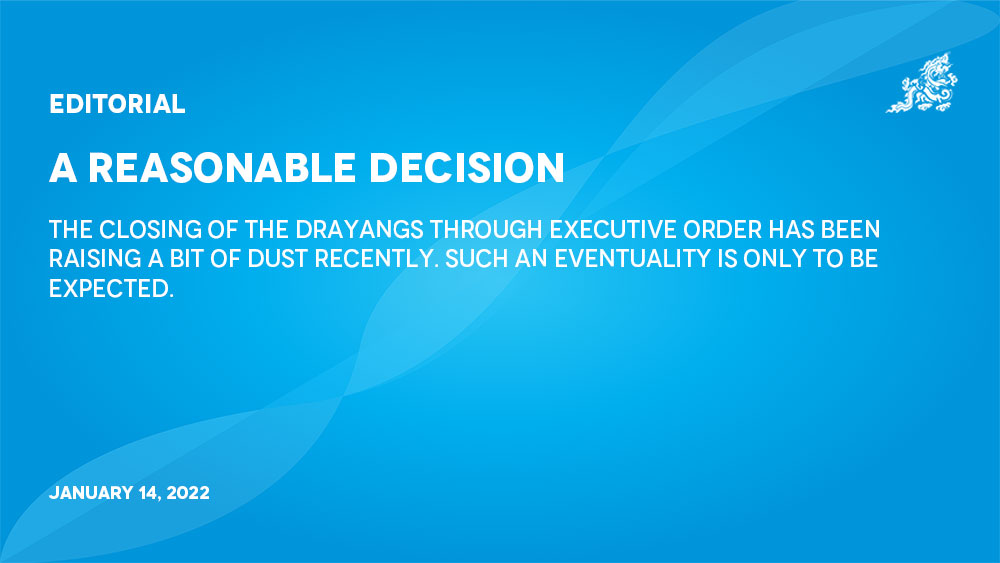The closing of the drayangs through executive order has been raising a bit of dust recently. Such an eventuality is only to be expected.
What we must not forget, however, is that this is the culmination of a long process of consultation among researchers and drayang owners.
The option was made clear from the beginning: reform or restructure the way drayangs are run, or curtains will have to be pulled. The way the entertainment business had unfortunately veered off to take an uncomfortably sleazy shade, the option given was sensible.
The recommendations were reasonable: drayangs should have specialised team of waiters and entertainers. Safety was another area of concern that the drayangs were asked to improve.
The idea is to reform the sector to give it a dignity as a clean and professional business that reflects Bhutanese values. This, unfortunately, did not go down well with the drayang owners.
Drayangs should represent and showcase true Bhutanese art through songs and dances.
So, what was to come has come. There are about 60 drayangs in the country today. The immediate question is: what will happen to these many businesses and the many who depend on them for their livelihoods?
When the pandemic hit Bhutan and certain such businesses had to close, the government made arrangements to ease financial burden on drayang owners, and those who were working as entertainers were given skills training to make them independent.
The next pertinent question is this: what happens now?
The executive order has put an end to the drayang business; the government is paying for the loss that drayang owners have suffered. The prime minister’s directive, which says that the Ministry of Economic Affairs, Ministry of Finance, and Ministry of Labour and Human Resources should collaborate and render necessary support to drayang operators and workers as they explore new avenues, may now have less value than it had when it came, but the debate is about reform.
The doors are still open. Drayang can be a dynamic business that can recognise talents and give young Bhutanese the platform to mature and rise. But drayangs cannot proliferate the way they have been multiplying without professionalising the sector.
If the drayangs can accept the changes recommended by the government, they must close. The government’s intervention now is more than just reasonable.


